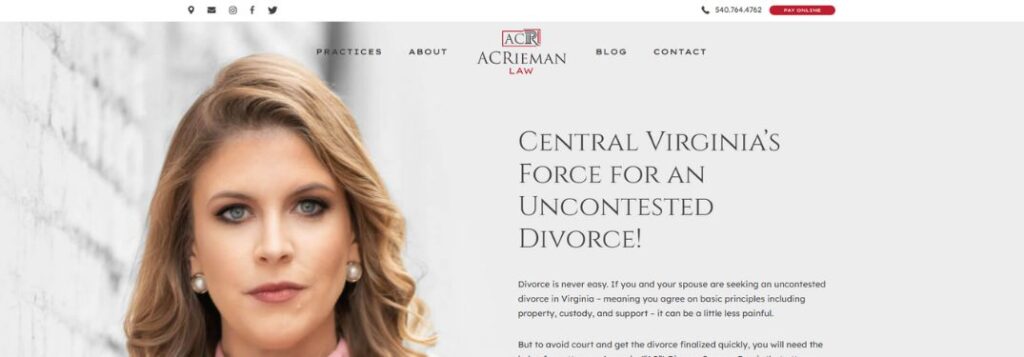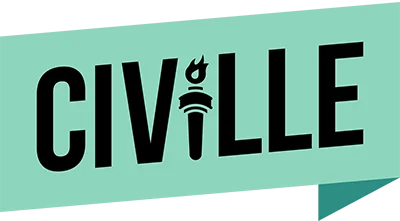
Yes, and Here’s Why
In the digital age, asking if a law firm needs a website is almost like asking if a lawyer needs a briefcase. Let’s move beyond the obvious and explore the compelling reasons why a website is more than just an online presence—it’s the cornerstone of your modern legal practice.
First Impressions Matter
Imagine this: you’re in a bind, needing help with something you’ve never dealt with before. Maybe it’s a plumbing emergency or finding a reliable dog walker. What’s the first thing you do? You turn to Google, right?
Well, guess what? People looking for legal help do the exact same thing. Your website is like your firm’s online welcome mat – it’s the first glimpse potential clients get into who you are and what you offer. Think of it as your chance to make a killer first impression, showing off your legal chops and building trust before they even step foot in your office.

A well-designed website acts as your digital headquarters. It’s a place where visitors can browse your practice areas, get a feel for your firm’s personality, and, most importantly, decide if you’re the right fit for their needs. It’s like a 24/7 open house, inviting people in to learn more about you and your services.
The Legitimacy Factor: Building Credibility in the Digital Age
Let’s put it this way: in today’s world, your online presence is your business card. Not having a website is like showing up to a networking event without one – it raises questions and makes people wonder if you’re really serious.
For big firms, a sleek, well-designed website isn’t just a perk; it’s a necessity. It reinforces their reputation and shows they’re invested in providing clients with easy access to information.
But guess what? A website is even more crucial for smaller firms and solo practitioners. It’s your chance to punch above your weight class, showcasing your expertise and reaching a wider audience without breaking the bank on advertising. In a crowded legal market, a well-crafted website is your way to stand out and say, “Hey, we’re here, we’re legit, and we’re ready to help.”
Meeting Clients Where They Are
Someone’s just had a fender bender, or maybe they’re facing a messy divorce. They’re stressed, confused, and have no idea where to start. What do they do? They fire up Google and start searching for answers. Your website is your chance to be that beacon in the dark, showing up right when they need you most.
But it’s not just about showing up; it’s about making a connection. Go beyond the dry “About Us” page. Share real-life stories of how you’ve helped clients overcome challenges. Let them hear from happy clients through testimonials. And sprinkle in some blog posts showcasing your expertise – think of it as offering free legal advice to prove you know your stuff.
When your website speaks directly to the problems people are facing, it acts like a magnet, pulling in the right kind of clients – those who not only need your help but also believe you’re the perfect team to fight for them.
Add a Personal Touch Throughout Your Site
Attorney bios are a great starting point, but remember, your website isn’t just about showcasing legal expertise. It needs to offer more than cold, hard facts. People going through legal troubles are often stressed and anxious; they need to feel heard and understood. Your website should be a warm, inviting space where they feel comfortable reaching out. It’s your chance to show them you’re not just a bunch of legal eagles – you’re real people who care about their problems and will fight tooth and nail for them.
Read More: 2024 Guide to Writing The Best Attorney Website Profile
Here are some ways to achieve this:
- Client-Centric Language—Avoid overly formal or legalistic language in your website copy. Speak directly to potential clients, using clear, everyday terms they can understand.
- Success Stories—Share real-life examples of how your firm has helped clients overcome challenges. These success stories build trust and demonstrate your commitment to achieving positive outcomes.
- Testimonials and Reviews—Client testimonials and reviews offer powerful social proof. Showcase positive feedback from past clients to show potential clients that others have trusted and benefited from your services.
- Community Involvement—Highlight your firm’s involvement in the local community. This demonstrates your commitment to giving back and shows potential clients you’re not just a faceless entity but an active participant in their community.
- Values-Driven Content—Create blog posts or dedicated pages that articulate your firm’s core values. Whether it’s a dedication to accessibility, social justice, or client-centered representation, transparency about your values helps attract clients who share your vision.
Clear Communication and Easy Access: Lowering the Barriers
For many people, seeking legal help can be a daunting experience. Your website should aim to alleviate those anxieties and make the process as smooth as possible. This starts with clear communication and easy access to your firm.
- Clarity is Key—Ensure your website clearly articulates the types of legal services you offer and the areas of law you specialize in. Avoid confusing jargon and use plain language that anyone can understand.
- Contact Information Front and Center—Make it easy for potential clients to reach you. Display your phone number prominently on every page, ideally in the header or footer. Include a clear contact form and consider adding a live chat feature for immediate assistance.
- Free Consultations—If you offer free consultations, make that a focal point on your homepage. This removes a significant barrier for those hesitant to take the first step.
- Calls to Action—Use clear and compelling calls to action throughout your site, encouraging visitors to contact you, schedule a consultation, or download a helpful resource.
Connecting Through Design
Your website’s design isn’t just about looking good. It’s about connecting with your audience on a deeper level. Visual elements, color palettes, and overall layout can subtly communicate your firm’s personality, values, and approach to legal practice. Consider using non-stock imagery when possible that evokes trust and professionalism, such as courtroom scenes or images of attorneys collaborating with clients.

If relevant to your practice, incorporating local imagery—think recognizable landmarks or scenes from your community—can further solidify your connection to the area you serve. Color psychology can also play a role. Cool blues and greens might convey a sense of calm and stability, while bolder colors could suggest energy and dynamism. Ultimately, your website’s design should reflect your firm’s unique brand identity and resonate with the specific clientele you aim to serve.
Read More: The Psychology of Color in Law Firm Websites
Investing in Your Digital Foundation Before the Billboards and TV Spots
Before you pour money into billboards, TV commercials, or paid online ads, invest in the foundation of your online presence: your website. It’s the hub of your digital marketing strategy, where potential clients will land after clicking on an ad, searching for your firm’s name, or finding you in organic search results.
Imagine having a tireless, 24/7 receptionist who never calls in sick and is always ready to greet potential clients. That’s your website! It doesn’t matter if it’s 3 AM or a Sunday afternoon – your site is always open for business, ready to provide helpful information and showcase your legal expertise. While you’re catching some Z’s or enjoying time with family, your website is busy nurturing those potential leads, gently guiding them towards making that all-important call or filling out that contact form. It’s like having a silent partner working around the clock to help you grow your practice.
The Modern Law Firm: Embracing the Digital Shift
The truth is, law firms that can survive without a website are a dying breed. The vast majority of legal consumers start their search for an attorney online. Without a strong web presence, you risk being invisible to a large portion of your potential market.
For new firms, launching without a website is akin to opening a storefront on a deserted street. It’s a missed opportunity to establish your brand, build credibility, and attract clients from day one.
Your Website is Your Modern Front Door
In today’s digital world, a website is a non-negotiable asset for any law firm. It’s your 24/7 marketing tool, your credibility builder, and your connection to the ever-growing online audience seeking legal services. Don’t underestimate the power of your website. Invest in a well-designed, user-friendly platform that showcases your expertise and helps you build lasting relationships with clients.
100 Best Law Firm Websites | 2024 Web Design Winners
The Civille Advantage
At Civille, we specialize in creating websites that are more than just pretty designs. We understand the unique needs of law firms and build websites that are not only visually appealing but also optimized for search engines, user experience, and lead generation.
Our team of experts can guide you through every step of the process, from initial design to content creation and ongoing optimization. We’ll help you craft a website that effectively communicates your firm’s values, expertise, and personality, leaving a lasting positive impression on potential clients. Reach out to Civille today and let us start building your perfect law firm website.





